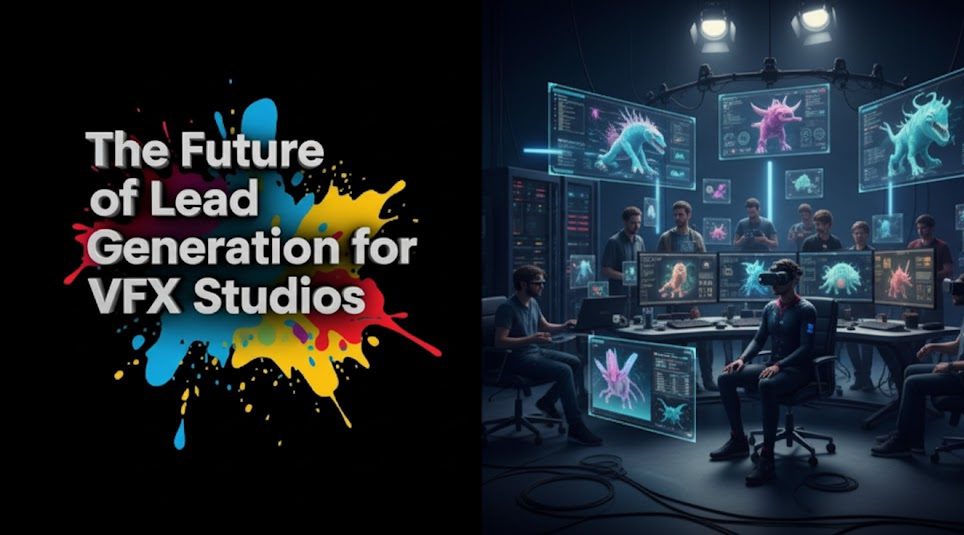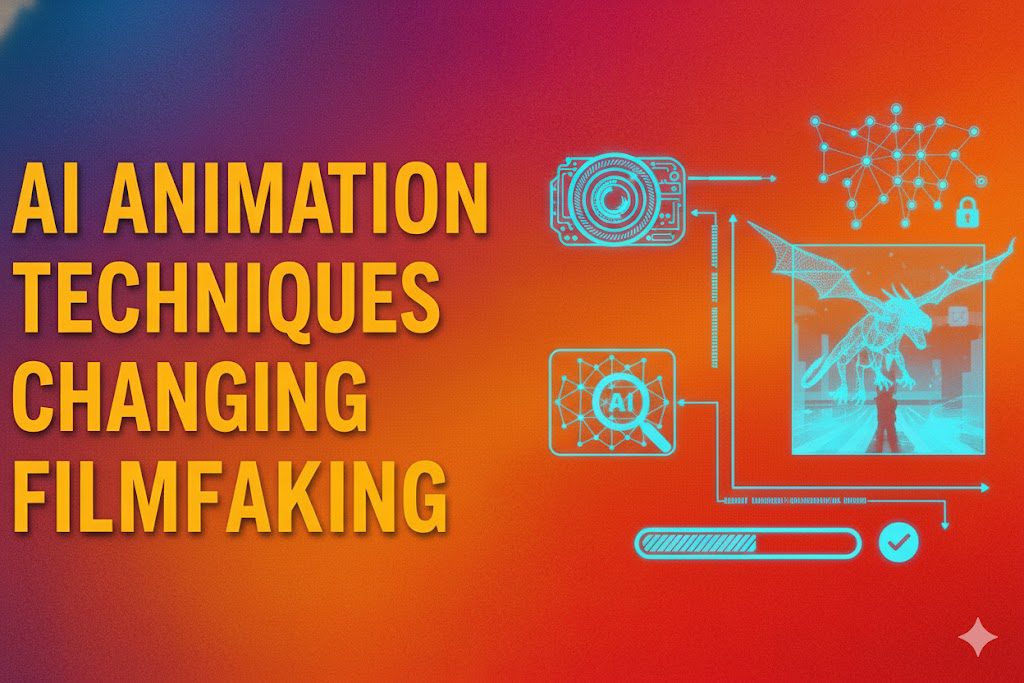Introduction
So, you’ve poured your heart and soul into creating a fantastic startup reality show. The concept is fresh, the characters are compelling, and you know it has massive potential. But what’s next? Getting your show seen by the right audience is crucial, and that’s where mastering distribution for startup reality shows comes in.
This article will guide you through the ins and outs of getting your unscripted format from an idea in an emerging market to screens worldwide. We’ll explore strategies, tackle challenges, and show you how to find the perfect partners to make your distribution dreams a reality. Many creators wonder, “How can I get my new show out there?” and we’re here to answer that.
Table of content
- Introduction
- Key-Takeaways
- Understanding the Distribution Landscape for Startup Reality Shows
- Preparing Your Startup Reality Show for Distribution
- Finding and Pitching to Distributors for Your Reality Show
- Navigating Deals and Monetization for Startup Reality Shows
- How Vitrina Powers Your Reality Show Distribution Journey
- Conclusion
- FAQs
Key Takeaways
| Pillar Aspect | Core Insight |
|---|---|
| Definition & Importance | Film sales and distribution encompasses all processes involved in selling the rights to a film and getting it to various audiences through multiple channels. It’s vital for revenue generation and audience reach. |
| Strategic Sales | A robust sales strategy involves understanding your film’s value, identifying target buyers (distributors, platforms), and effectively pitching your project, often with the help of sales agents. |
| Distribution Channels | Modern distribution spans theatrical releases, streaming platforms (SVOD, AVOD, TVOD), television broadcast, and ancillary markets like educational and inflight entertainment. |
| Markets & Festivals | Key industry events like Cannes, Berlinale (EFM), and AFM are crucial for networking, sales, and launching films into the distribution pipeline. |
| Deals & Agreements | Understanding legal contracts, licensing terms, rights management (territorial, windowing), and negotiation is fundamental to protecting your interests and maximizing returns. |
| Global Reach & Technology | International sales and leveraging technology and data, like insights from Vitrina, are increasingly critical for maximizing a film’s global footprint and revenue potential. |
Struggling to Find Distribution Partners?

Understanding the Distribution Landscape for Startup Reality Shows
The world of television and streaming is always hungry for new, exciting content. Startup reality shows, especially those bringing fresh perspectives from emerging markets, have a unique appeal. But it’s not always a walk in the park. You’re entering a bustling marketplace, and understanding its currents is vital for successful distribution for startup reality shows.
One of the biggest trends is the rise of global streaming platforms. These giants are constantly looking for original content, opening doors for independent producers. However, they also have high standards and specific content needs. Another trend is the increasing interest in unscripted formats that can be adapted for local audiences worldwide. This means your unique show idea from an emerging market could find a home in many different countries!
- Global Demand: Streamers and traditional broadcasters are actively seeking diverse voices and stories.
- Format Adaptability: Shows that can be easily tailored for different cultures have a higher chance of international success.
- Niche Audiences: Digital platforms allow for targeting specific interest groups, which can be great for unique reality concepts.
- Competition: The market is crowded, so your show needs to stand out.
Producers often ask, “What are the key challenges for new reality show creators?” One major hurdle is visibility. Getting noticed by the right distributors or commissioning editors takes effort. Funding can also be a challenge, as distribution often requires some upfront investment in marketing materials or attending markets.
| Challenge | Description | Potential Mitigation |
|---|---|---|
| Market Saturation | Many reality shows are vying for attention. | Develop a truly unique concept and a strong marketing angle. |
| Access to Buyers | Difficult for new creators to connect with key decision-makers. | Utilize industry networks, markets, and platforms like Vitrina. |
| Funding for Pitching/Marketing | Costs associated with creating professional pitch materials and attending events. | Seek early-stage funding or grants; create a lean but effective pitch package. |
| Understanding Market Needs | Knowing what specific territories or platforms are looking for. | Conduct thorough market research; leverage industry reports and data. |
Opportunities in emerging markets for reality formats are particularly exciting. These regions often have vibrant storytelling traditions and untapped talent pools. International buyers are increasingly looking to these markets for fresh, authentic content that can resonate globally. Success here often involves understanding local nuances while crafting a universally appealing narrative.
Preparing Your Startup Reality Show for Distribution
Before you even think about approaching a distributor, you need to have your ducks in a row. Solid preparation can make all the difference in the competitive world of distribution for startup reality shows. Think of it as building a strong foundation for your show’s journey to the screen.
Your pitch deck is your show’s resume and cover letter rolled into one. It needs to be compelling, concise, and visually appealing. It should clearly communicate your show’s concept, target audience, unique selling points, and potential for success. We often hear producers ask, “What are the key elements for a successful reality show pitch deck for distribution?”
- Logline & Synopsis: A catchy one-liner and a brief overview of the show.
- Format Details: Episode structure, length, and number of episodes.
- Target Audience: Who is this show for? Be specific.
- Unique Selling Proposition (USP): What makes your show different and must-see?
- Characters/Talent: Introduce any key personalities involved.
- Visuals: Concept art, mood boards, or even a sizzle reel if you have one.
- Production Team: Highlight relevant experience.
- Distribution Goals: What are you looking for in a distribution partner?
Protecting your intellectual property (IP) is paramount. Before you share your concept widely, make sure you understand how to safeguard it. This might involve copyright registration, non-disclosure agreements (NDAs) when pitching, and clear chain-of-title documentation. It’s always wise to consult with an entertainment lawyer specializing in this area. You want to ensure that your brilliant idea remains yours.
Understanding different distribution models is also crucial. The main avenues include:
| Distribution Model | Description | Pros for Startups | Cons for Startups |
|---|---|---|---|
| Traditional TV Licensing | Selling rights to broadcast networks (free-to-air, cable, satellite). | Potentially wide reach, established revenue streams. | Can be hard to break into, less control over scheduling. |
| Streaming Platform Deals (SVOD/AVOD/FAST) | Licensing to services like Netflix, Amazon Prime Video, Hulu, or specialized FAST channels. | Global reach, often open to unique content, data insights. | Varying deal structures, exclusivity clauses can be restrictive. |
| Digital Self-Distribution | Using platforms like YouTube, Vimeo On Demand, or creating your own platform. | Full control, direct audience relationship. | Requires significant marketing effort, harder to monetize initially. |
| Format Sales | Selling the rights for your show’s concept to be remade in other territories. | Multiple revenue streams from one idea, global brand building. | Requires a strong, adaptable format. |
For startup reality shows, a mix of these models might be the best approach. Being flexible and open to different kinds of deals can significantly increase your chances of successful distribution.
Finding and Pitching to Distributors for Your Reality Show
Once your show is prepped and polished, it’s time for the exciting (and sometimes daunting) task of finding and pitching to distributors. This is where your hard work starts to meet the market. For effective distribution for startup reality shows, connecting with the right people is everything.
So, how do you identify and approach the right distributors? Start by researching companies that handle content similar to yours. Look at their catalog, the territories they cover, and the types of platforms they work with. Industry events, markets like MIPCOM or NATPE, and online databases are invaluable resources. Don’t just blast your pitch to everyone; a targeted approach is much more effective. Personal connections can also open doors, so networking is key.
- Research: Identify distributors specializing in reality TV or unscripted content.
- Networking: Attend industry markets, conferences, and online forums.
- Online Platforms: Use B2B marketplaces to find and connect with distributors.
- Industry Directories: Publications and online resources often list distributors and their acquisition needs.
- Referrals: Ask for introductions if you have mutual contacts.
Strategies for pitching to international buyers often require a bit more nuance. Understand cultural sensitivities and what resonates in different territories. Highlighting the universal themes in your show while also pointing out its unique cultural flavor can be a winning combination. Be prepared to talk about how your show might be adapted or versioned for different markets. A one-size-fits-all pitch rarely works internationally.
The role of sales agents can be crucial, especially for independent producers. A good sales agent has established relationships with buyers and understands the market intricacies. They can help refine your pitch, negotiate deals, and manage the sales process. While they take a commission, their expertise and connections can often lead to better deals and wider distribution than you might achieve on your own. It’s an investment that can pay off significantly.
| Pitching Element | Why It’s Important | Tip for Startup Reality Shows |
|---|---|---|
| Clear Logline | Grabs attention immediately. | Practice it until it’s concise and impactful. |
| Sizzle Reel | Shows, doesn’t just tell, the energy and appeal of your show. | Even a short, well-edited sizzle (2-3 minutes) can be powerful. |
| Understanding Buyer Needs | Shows you’ve done your homework and aren’t wasting their time. | Tailor your pitch slightly for each specific distributor. |
| Enthusiasm & Passion | Your belief in the project is contagious. | Let your genuine excitement for the show shine through. |
| Clear Call to Action | What do you want from them? (e.g., a meeting, a pre-sale, an acquisition) | Be specific about the next steps you’re proposing. |
Remember, pitching is a numbers game, but quality and targeting improve your odds dramatically. Be persistent, be professional, and believe in your project.
Want to Track Your Pitches Like a Pro?

Navigating Deals and Monetization for Startup Reality Shows
You’ve got interest! A distributor wants to talk. This is a huge step in the distribution for startup reality shows. Now, it’s about navigating the deal-making process and ensuring you get fair terms that set your show up for success. Understanding the legalese and financial aspects is key.
Key elements of a distribution agreement can seem complex, but they generally cover a few core areas. These include the rights granted (e.g., specific territories, platforms, languages), the term of the agreement (how long the distributor has the rights), the distribution fee or revenue share, delivery requirements, and marketing commitments. It’s highly recommended to have an entertainment lawyer review any agreement before you sign. They can help you understand the implications of each clause and negotiate on your behalf.
- Territory: Which countries or regions does the deal cover?
- Term: How long will the distributor have the rights to your show?
- Rights Granted: What can they do with your show (e.g., TV broadcast, SVOD, AVOD, theatrical)?
- Financials: Advance, minimum guarantee (MG), revenue share, expense recoupment.
- Delivery Materials: What technical and promotional materials do you need to provide?
- Marketing & Promotion: What are the distributor’s obligations?
- Reporting & Audits: How and when will you receive statements and have audit rights?
Monetization strategies for startup reality shows can go beyond the initial licensing fee from a distributor. Think about ancillary rights and other revenue streams. Could your show lead to merchandise? Is there potential for brand integrations or sponsorships? What about selling clips or short-form content derived from the main show? Exploring these avenues can significantly boost your show’s overall profitability.
| Monetization Avenue | Description | Potential for Startup Reality Shows |
|---|---|---|
| Licensing Fees/Advances | Upfront payments or guarantees from distributors. | Primary revenue source for many. |
| Revenue Sharing | A percentage of income generated after distributor’s expenses and fees. | Offers upside if the show performs well. |
| Format Sales | Selling the rights to remake the show in other territories. | Highly lucrative for strong, adaptable concepts. |
| Sponsorship & Brand Integration | Incorporating brands into the show content. | Can provide production funding and additional revenue. |
| Merchandising | Selling products related to the show (e.g., catchphrases, apparel). | Depends on the show’s popularity and brand appeal. |
| Digital/Social Media Monetization | Ad revenue from clips on YouTube, paid social content. | Good for audience engagement and supplemental income. |
Co-production opportunities can also be a strategic pathway for distribution. Partnering with a production company in another territory can bring not only funding but also access to local distribution channels and market knowledge. This can be particularly useful for creators in emerging markets looking to tap into more established TV landscapes. These partnerships often mean sharing creative control and backend revenue, but the benefits in terms of reach and resources can be substantial.
How Vitrina Powers Your Reality Show Distribution Journey
Navigating the complex world of distribution for startup reality shows can feel overwhelming, especially for new creators or those in emerging markets. That’s where a platform like Vitrina comes in, acting as a powerful ally to connect your unique unscripted format with a global network of buyers and opportunities.
Vitrina is designed to bridge the gap between content creators and the international marketplace. For producers of startup reality shows, it offers a streamlined way to showcase your projects to a curated audience of distributors, broadcasters, and streaming platforms actively looking for new content. Instead of cold-emailing into the void, you can present your show on a platform where buyers are specifically searching for acquisitions. This significantly increases your visibility and chances of getting noticed.
One of the key ways Vitrina supports creators is through its comprehensive database and intelligent matchmaking. You can list your reality show, complete with pitch materials, sizzle reels, and all the essential details. The platform then helps potential buyers discover your content based on their specific needs and acquisition mandates. Think of it as a highly efficient, 24/7 global content market at your fingertips. Furthermore, if you’re looking for data on who is buying what, or which distributors are active in specific genres or territories, Vitrina’s solution provides valuable market intelligence to inform your distribution strategy.
Moreover, Vitrina’s project tracker can be an invaluable tool once you start getting interest. It can help you manage your pitches, keep track of submissions to different distributors, and follow up on leads. This organizational aspect is crucial when you’re juggling multiple conversations and trying to move deals forward. By centralizing this information, Vitrina helps ensure that no opportunity slips through the cracks.
- Enhanced Visibility: Showcase your reality show to a global network of verified buyers.
- Targeted Matchmaking: Connect with distributors actively seeking content like yours.
- Market Intelligence: Access data and insights to refine your distribution strategy.
- Streamlined Workflow: Manage your pitches and track deal progress efficiently.
- Access to Emerging Markets: Helps buyers discover content from diverse regions and helps sellers from these regions find global partners.
In essence, Vitrina empowers creators of startup reality shows by providing the tools, connections, and intelligence needed to navigate the distribution landscape more effectively and achieve global reach for their unique stories.
Conclusion
Successfully navigating distribution for startup reality shows is a journey that combines creativity with smart strategy. From polishing your pitch to understanding market demands and finding the right partners, every step matters. Emerging markets are brimming with untold stories and fresh formats, and the global appetite for authentic reality content has never been stronger. By preparing thoroughly, networking effectively, and leveraging powerful tools, you can turn your startup reality show into a global success story.
Don’t let the complexities of distribution hold you back. Your unique voice and vision deserve to be seen and heard around the world. Take the first step today to unlock your show’s potential.
Ready to connect your startup reality show with global distributors? Discover how Vitrina can amplify your reach. Why not sign up and explore the possibilities?
Frequently Asked Questions
There’s no single answer. Costs can range from minimal (if you do everything yourself and get lucky) to significant (if you hire sales agents, lawyers, and attend multiple markets). Some distributors might offer an advance that can cover some costs, while others work on a revenue-share model after recouping expenses. Having a polished pitch package is a key initial investment. Vitrina can help reduce search costs by connecting you directly with interested buyers.
Ideally, both! A strong local network can provide immediate opportunities and community support. However, international networking opens doors to larger markets, diverse projects, and global talent. Your balance will depend on your studio’s goals and current capacity. Platforms like Vitrina can help bridge this gap by making international connections more accessible.
It can vary wildly, from a few months to several years. It depends on the show’s appeal, market conditions, your networking efforts, and the distributor’s decision-making process. Persistence is key. Vitrina can help expedite the discovery process by putting your show in front of many potential partners simultaneously.
One of the biggest mistakes is being purely transactional – only reaching out when you need something. Networking is about building relationships. Offer value, share insights, and connect on a human level. Another mistake is not following up. A great conversation at an event or online is lost if there’s no continued engagement.






































